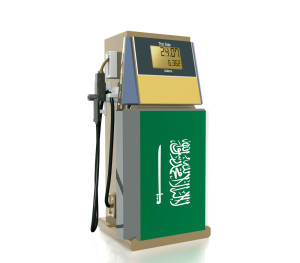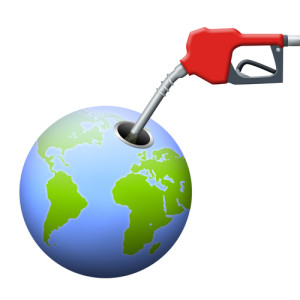 Loving those lower prices at the gas-petrol pump? Bit clueless about any seriously negative spillover? Here’s what is really going on.
Loving those lower prices at the gas-petrol pump? Bit clueless about any seriously negative spillover? Here’s what is really going on.
According to OPEC’s website, 13 nations currently belong to the Organization of Petroleum Exporting Countries (OPEC) — note, the word petroleum can mean either unprocessed crude or refined petroleum products. And the black gooey stuff straight from the ground known as crude oil has made several of them super wealthy while adding to strife in or between some.
OPEC pretty much controls the oil market. Six of its member nations are located in either North Africa or South America and one is in Southeast Asia. The remaining six, including both Iraq and Iran, are all in the Middle East. And it has a plan.
So why should we care?
OPEC Strategy
In 2014, the organization decided to expand oil production, it said, so prices would fall. As a result, it added, fracking and horizontal drilling to extract oil from shale, by countries like the United States and Canada would become unprofitable. Early in 2016, this appears to be happening.
According to CNN Money in its January 13th article,
“Since oil prices began collapsing, oil companies have sacked hundreds of thousands of workers, and slashed investment budgets.
But the global supply glut continues, thanks in part to China’s slowing economy, and prices have continued to tumble. …”
However, it’s not that simple. Others are convinced they too are strategic targets.
Iran
Reuters said on January 25th that Iran — until now constrained by economic sanctions — desires to boost its production though that adds to the oversupply, She is an OPEC member but Saudi Arabia’s arch-rival in the region.
On January 25th, DW News TV featured an interview with Lancaster University Professor, Middle East Relations expert and book author, Simon Mabon. Questioned about the low oil prices, he singled out one country,
“The Saudis have sought to employ oil as a weapon … The Saudi’s have accumulated a huge budget deficit with the intended consequence of weakening the Iranian economy.”
Russia
Iran, the West, and OPEC are not the only ones feeling the effect. The oil glut is crippling OPEC’s oil rival, Russia. She is also perceived as Iran’s friend.
According to a Yahoo News website January 25th article courtesy of Reuters, Russia refuses to curb her own output. OPEC claims if she reduced output, it would too.
The website added,
“Moscow … as its currency collapsed to an all-time low last week and with parliamentary and presidential election looming in the next two years, pressure is rising on the Kremlin to protect state revenues and avoid mass public discontent.”
At OPEC’s latest meeting, 9 of the countries were ready to totally scrap the price war while the remaining four – Kuwait, Qatar, Saudi Arabia and the UAE (United Arab Emirates) – felt it was still too soon. The next scheduled meeting is in June
Saudi Arabia and ARAMCO
Besides Prof. Mabon, others think at least one of the 4 holdouts is also really hurting.
Rumors are circulating that shares may be soon offered in ARAMCO, Saudi Arabia’s oil company. In a January 8th article, CNN Money said.
“The fact that Saudi Arabia is considering selling now, when oil prices have collapsed to their lowest in a decade, speaks volumes about its dire financial situation. Oil accounts for 75% of Saudi Arabia’s revenue, and the plunge in prices is hurting big time.”
In a 3rd article dated January 5th about Saudi Arabia and methods for dealing with its “cash crunch”, CNN Money commented,
“The gas hike is just the beginning. Water and electricity prices are also going up, and the government is scaling back spending on roads, buildings and other infrastructure.”
The Economist magazine interviewed Saudi Arabia’s Deputy Crown Prince in early January. In the interview, he said that Saudi Arabia is in good shape financially and has a number of other options.
Another factor plays into all of this. Oil experts have been claiming for decades that the world would soon run out of oil. Other experts now say not so but only the more easily obtained oil will be gone. Estimates for either scenario center around the middle of this century. Some say as early as 2030.
High Stakes Game
In any case, at first glance, precipitating an oil glut seems counterproductive for OPEC as a whole.
 Back in 2014, OPEC must have figured increased shale oil mining would depress prices anyway, so it might as well be in control of the fall — as well as the rapid rise that should follow once her objective was won.
Back in 2014, OPEC must have figured increased shale oil mining would depress prices anyway, so it might as well be in control of the fall — as well as the rapid rise that should follow once her objective was won.
Most in OPEC, no doubt, not only concluded the cost to them would shortly be recouped but that delaying large-scale implementation of shale extraction could buy them more time to reorient their own economies. Plus, the clout factor black gold provides is something OPEC would not be eager to see diluted just yet.
Now, according to an AFP article on the 22nd, Saudi Arabia believes the market “overshot itself” and called current prices “irrational.” But at the same time, the one thought to be OPEC’s most powerful member did not call for a production cut.
The multibillion dollar/pound/euro question is who will cave first? And of greater importance is how will this high stakes game, coupled with everything else confronting mankind, affect the planet, its people, and global politics in 2016 and later?